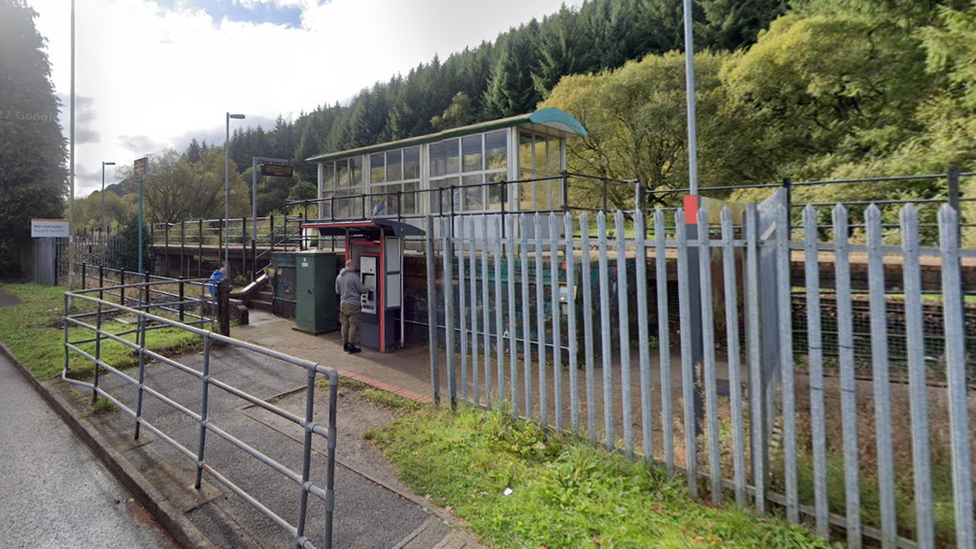Transport for Wales to shake up train timetables
- Published
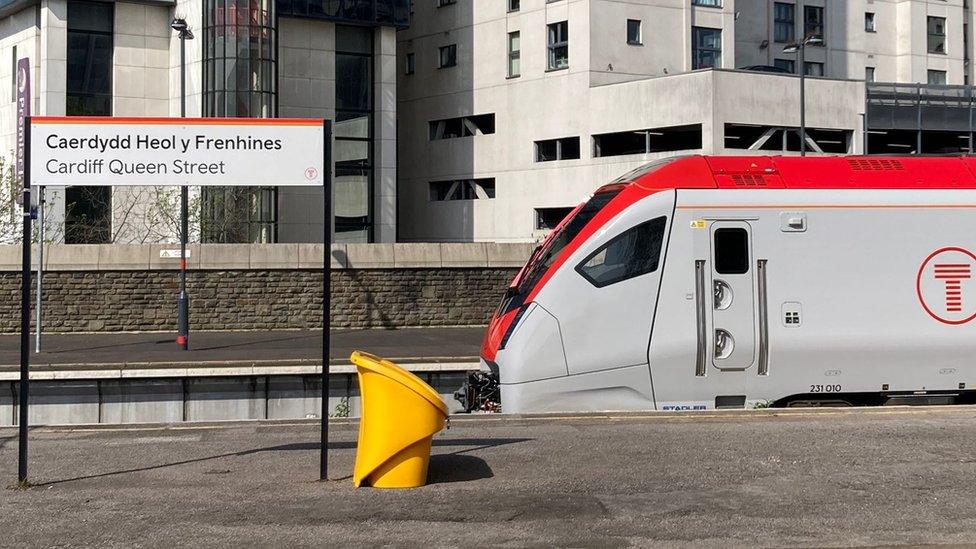
Timetables of all trains run by Transport by Wales are to be examined after "massive" changes to travel patterns in the aftermath of Covid.
TfW chief executive James Price told MPs that running old timetables "just isn't working" with people working from home and commuting at weekends.
Mr Price played down the possibility it could mean fewer services.
He also admitted services between north and south Wales have performed "incredibly badly".
But the official said the route known as the Welsh Marches line is the only profitable service the Welsh government-owned organisation has.
It is expected the timetable review - which will report back to ministers in the autumn - will look at all plans TfW has to boost services.
TfW confirmed it would meanwhile postpone some improvements to services planned for December, external - including a service to link Bangor to Manchester Airport, and to increase the number of trains between Cardiff to Cheltenham.
Welsh Conservative Senedd leader Andrew RT Davies said many users "will be concerned that a timetable change will ultimately lead to fewer services".
MPs challenged Mr Price over poor services and disruption from the south Wales Metro work at a hearing of the Welsh Affairs Select Committee on Wednesday.
One said constituents had been given "final warnings" by employers because they were regularly late for work.
Passengers have not returned in the numbers that previously used buses and trains since the worst of the pandemic passed.
It has meant the Welsh government has had to find extra money for the bus sector to try to maintain services.
The chief executive told the Commons committee that some future plans - because of the availability of trains and the "capability" of Network Rail - "are going to have to be postponed. Not all of them, but some of them".
"Whilst we go through the summer, what we are going to do is review all of our timetables," he said.
"What we've seen is a massive change in travel pattern as a consequence of Covid.
"Running a timetable that was designed probably 10 years ago - when no-one thought working from home was going to be a thing, when no-one thought a big commute at the weekend is going to be a thing - just isn't working.
"We've seen our pinch points completely moved. So we're reviewing all of that."
Later, committee chair and Conservative MP Stephen Crabb asked if there was a possibility some passengers would see fewer services.
He said in a "completely unconstrained world" it "could lead to that type of thing".
But the official said: "I personally don't think that government will be very interested in taking services away from anyone because that's a very difficult thing to do.
"This is predominantly around what new services do we do against what new services we promised to do."
Marches line
After criticism from a number of the MPs, Mr Price admitted that the Welsh Marches rail services have been performing "incredibly badly" due to problems "which were not predicted".
This was mainly due to the temporary withdrawal of Class 175 trains for safety checks after a number of fires meaning inferior trains had to be used instead.
The replacements were "typically non-air conditioned", he said. "They are typically trains that like to run at 75 miles an hour, not 90 miles an hour, so they tend to lose time on longer distance journeys.
"As a consequence of all of those things coming together, we ran a poorer quality service with less capacity that was struggling to keep to time for a period of time."
Due to "global supply chain" component failures it had taken "four or five months" for the company TfW leases the 175 trains from to get them back in service.
"I would say we are approaching an acceptable level of performance," he said.
"What I now need to do over the next couple of months is take that to a good level of performance. And then our ambition, obviously, is to run an excellent service."
Mr Price said that before the pandemic the Welsh Marches line had been "much less utilised than it is today" and that now "we are seeing much higher demand on the Marches line".
He said the Welsh Marches line was, in fact, "the only line that makes us any money".
"If we can make money, we can spend that money elsewhere, we can cross-subsidise our services," he said.
TfW is currently undergoing a major upgrade of the Valleys lines network, which has seen costs ballooning by more than £260m to £1bn.
Mr Price said that was due to inflation, Covid and unforeseen infrastructure constraints, such as having to build a private power network for the Rhymney line.
The work, which includes electrification, has caused significant disruption. Currently the Treherbert line is entirely replaced with buses from Pontypridd.
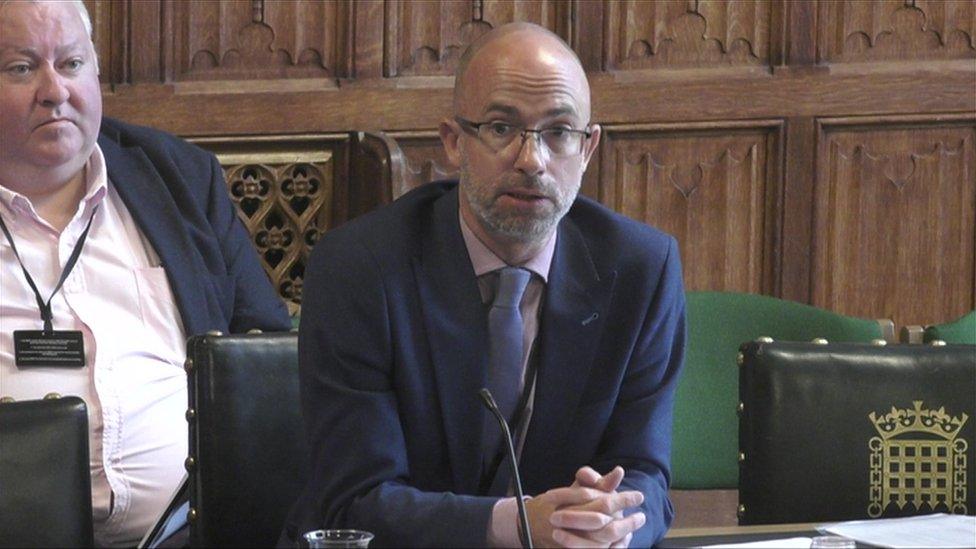
James Price spoke to members of the Welsh Affairs Select Committee on Wednesday
Beth Winter, Labour MP for Cynon Valley, said: "A lot of people from the valleys travel to Cardiff for work - a lot of people have been late for work. Some people have had final warnings from their employer."
Mr Price said most of the disruptive work has been complete "apart from the line through to Treherbert".
Apart from services on the latter line, he said he would like to have a "moment soon" where he can say "people can get back to using the valleys lines".
He admitted that the first few weeks of the organisation's bus replacement service during the early days of the upgrade was "not what it should have been and quite a few people were significantly impacted".
Mr Price promised that despite rising costs the full Metro would be delivered, because it would not be value for money to have leased the new trains and not have infrastructure for them to run on.
However he said the scheme is trying to eliminate "unnecessary scope" to reduce costs - suggesting some standards that may not need to apply and do not impact safety will not be met, although he did not explain what they were.
- Published20 April 2023
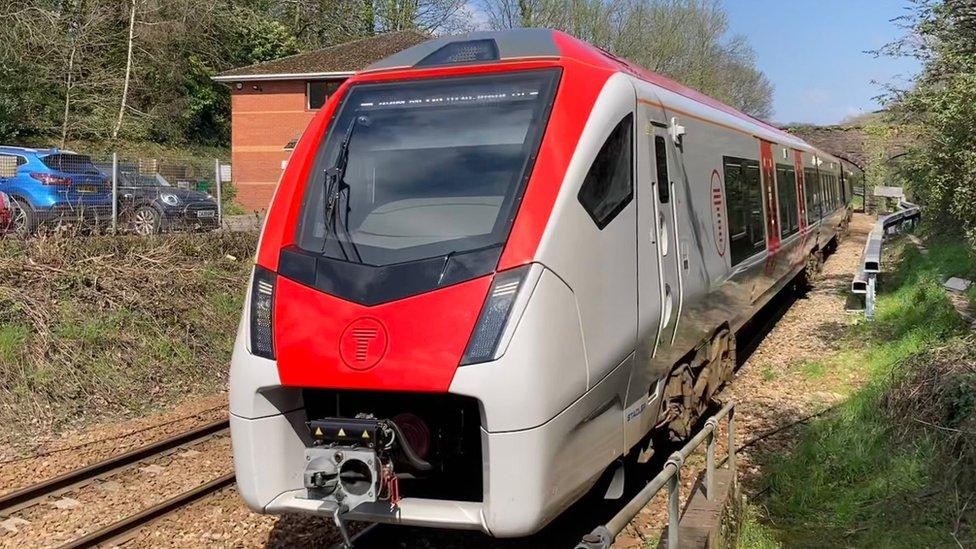
- Published22 October 2020
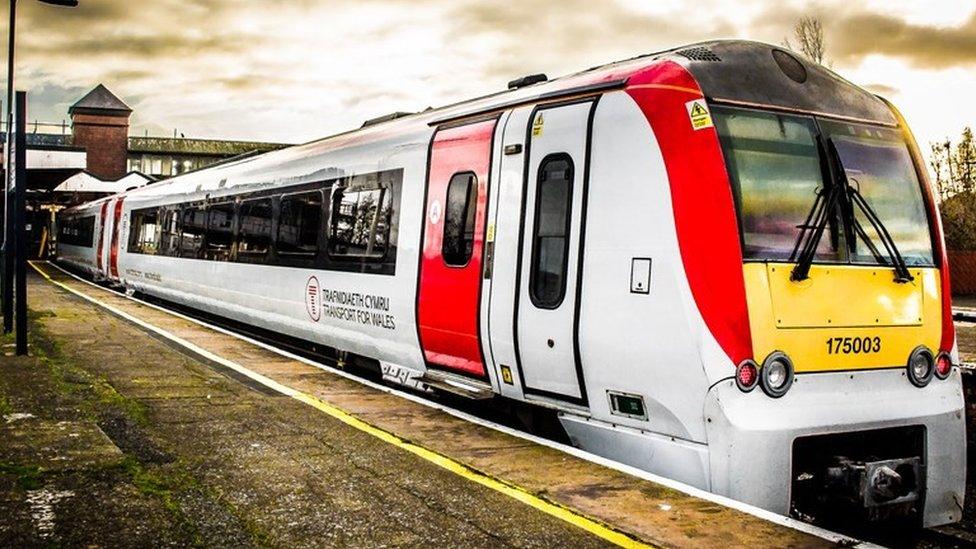
- Published19 May 2023
